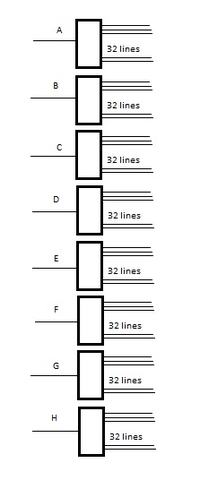forkconfig
Member level 1

- Joined
- Jan 28, 2013
- Messages
- 32
- Helped
- 0
- Reputation
- 0
- Reaction score
- 0
- Trophy points
- 1,286
- Activity points
- 1,655
I'm working on a hobby project and I have run into a problem with arbitration.
Is there any online lectures/course notes or books you can suggest to help me?
Also if you don't mind helping me here is my problem.
I have 256 clients, clients can make requests at any time.
At first what I did is I had a shared bus where clients could make requests on. But how would I ensure multiple clients don't request at the same time?
So then I added dedicated request lines. But then the issue was, now I have to check ALL 256 lines in the one clock cycle, so if in the next clock cycle, people want to make a request I don't loose those, and I maintain first come first serve sequence.
I'd really appreciate any help.
Thanks
Oh I'm using Verilog by the way.
Is there any online lectures/course notes or books you can suggest to help me?
Also if you don't mind helping me here is my problem.
I have 256 clients, clients can make requests at any time.
At first what I did is I had a shared bus where clients could make requests on. But how would I ensure multiple clients don't request at the same time?
So then I added dedicated request lines. But then the issue was, now I have to check ALL 256 lines in the one clock cycle, so if in the next clock cycle, people want to make a request I don't loose those, and I maintain first come first serve sequence.
I'd really appreciate any help.
Thanks
Oh I'm using Verilog by the way.


